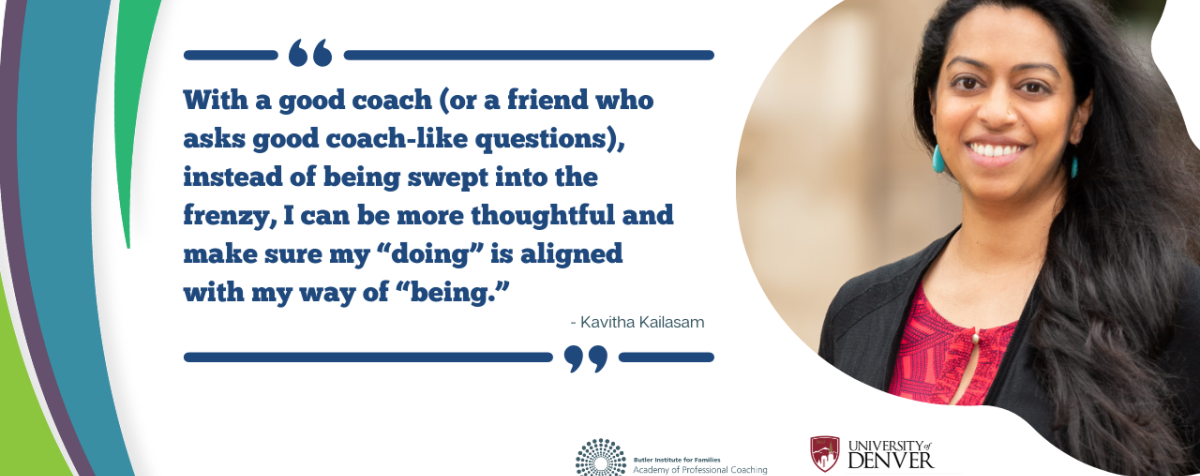The Season of Being: How Coaching Can Shed Light on Our Hopes and Dreams
Kavitha Kailasam | October 2022
Fall is my favorite time of year. As the season changes, I’m reminded to pause, reflect, and just “be,” even while on the brink of the busy holiday season. This month, my holiday season kicks off with Deepavali. It’s an energizing time of year. We connect with family and friends. We decorate our homes with lights and prepare our favorite foods to share. And we build memories and traditions around this season.
But it can also be a frantic time of year. When October comes around, I see the calendar filling up and feel like the year will be over in the blink of an eye. I feel overwhelmed and have been known to make a hasty decision or two. For example, it was this time of year, many years ago, that I decided to break up with my then-boyfriend. The rush of the upcoming holidays amplified my fear of the unknowns and I decided to end the relationship before I became too overwhelmed.
Stress, overwhelm, and anxiety are not uncommon in this season. With the swirl of activities and the pressures on our time, our brains become hyper-focused on to-do lists and problem-solving. We become less able to just “be.” As I learned in the Butler Institute’s Academy of Professional Coaching, brain science can help us understand two networks in our brains—the Task Positive Network (TPN) and the Default Mode Network (DMN). Both networks influence our ways of understanding and, in turn, influence our decision-making (Betz, 2015).
We engage the TPN and the DMN at different times, through different activities, and for different purposes. The TPN engages with more perceptual and analytical concepts, while the DMN engages with more social and emotional concepts. The TPN helps us focus and make decisions on particular issues, often being the network that is stimulated when we are reflecting on the past. The DMN, in contrast, allows us to think more broadly and encourages an open-ended mindset. While they work at different times, they both perform very important functions (Boyatzis and Jack, 2018).
The art and science of coaching can leverage these understandings, intentionally drawing us into the TPN or the DMN when one or the other seems to be overused and not in service of our ultimate values and aspirations. When my “get stuff done” energy activated the TPN, I was motivated to take hold of the uncertainty I was feeling and end my relationship right before the holidays. A good friend then flew into town, spent my birthday with me, and helped me slow down and think about the future. Engaging the DMN in this way helped me imagine what might be if I allowed the relationship to take its course and approached it from a space of dreaming rather than doing. The possibilities became inspiring rather than daunting. I reconnected with the boyfriend, and now, seven years later, we find ourselves with a baby who will turn one next month, adding more celebrations to the season and dreams for the future!
With a good coach (or a friend who asks good coach-like questions), instead of being swept into the frenzy, I can be more thoughtful and make sure my “doing” is aligned with my way of “being.” I can turn the chaos into energy that nurtures me rather than drains me. I can celebrate the season’s gifts, embracing the light that sheds knowledge, awareness, and being.

